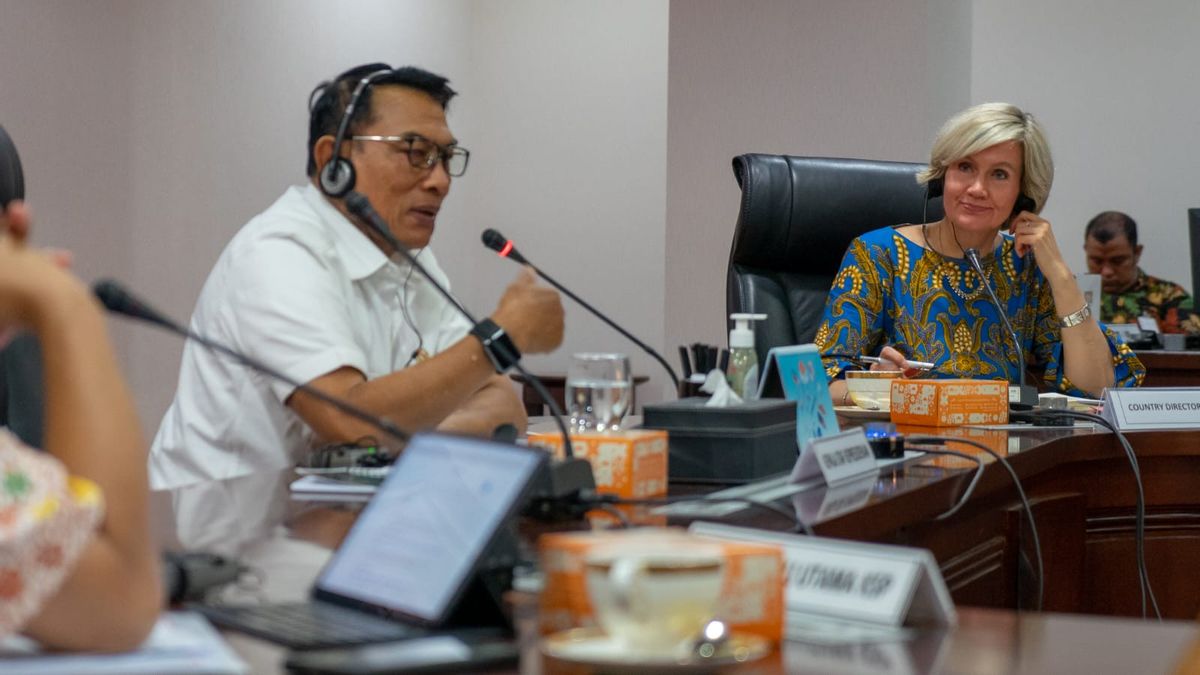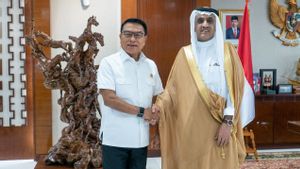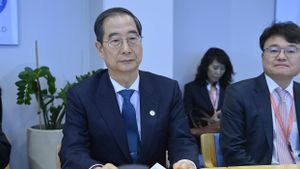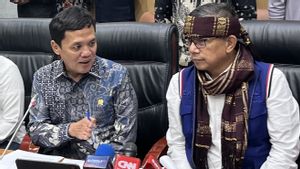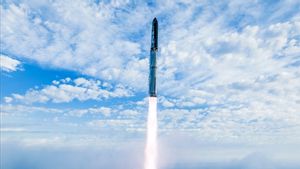JAKARTA - The World Bank appreciates Indonesia's commitment and consistent efforts in transforming Indonesia's economy towards a green and sustainable economy. This appreciation was conveyed directly by the Head of the World Bank Representatives for Indonesia and Timor-Leste, Satu Kahkonen, to the Presidential Chief of Staff Dr. Moeldoko at the Bina Graha Building, Jakarta, Tuesday, May 16 evening.
Indonesia's economic growth has indeed had an impact on the production of carbon emissions, just as has happened in other developing countries. However, the good news is that the pace of production of carbon emissions in Indonesia is not as short as the growth in per capita income," said Satu Kahkonen.
"The point is, the Indonesian economy can continue to grow, but at the same time, Indonesia is also reducing production of carbon emissions," he added.
According to data from the Indonesia Country Climate and Development Report (CCDR), Indonesia's economic growth rate has consistently increased, but the carbon emission rate in Indonesia has actually shown a downward trend.
Not only that, various government policies related to damaged land restoration, deforestation prevention, land mapping improvement, and the formation of special institutions for land management are considered to have yielded significant results to reduce carbon emissions production.
Moeldoko, on the other hand, also appreciated the World Bank for producing independent research on CCDR which explained the relationship between economic growth and climate change as well as photographing how the profile of economic growth and its efforts to overcome climate change.
President Joko Widodo's administration pays great attention to the issue of climate change. For example, in the long term, Indonesia has committed to targeting carbon neutralness in 2060 following the mandate of the Paris Agreement. Even when Indonesia was in the G20 Presidency last year, one of the big topics in its important meetings was about green economy and energy transition," said Moeldoko.
اقرأ أيضا:
He also mentioned several policies of President Jokowi which were considered effective in reducing deforestation figures in Indonesia, one of which was related to Presidential Instruction (Inpres) No. 8 of 2018 concerning Postponement and Evaluation of Oil Palm Plantation Licensing or Inpres palm moratorium. In addition, President Jokowi has also prepared the development of the largest green industrial area in the world covering an area of 30,000 hectares in North Kalimantan Province (Kaltara).
"When it comes to good relations between economic growth and emission reduction, I am optimistic that Indonesia is leading the way in this regard. The government pays great attention and commitment to the energy transition and this is not just a jargon or an empty promise," concluded Moeldoko.
The English, Chinese, Japanese, Arabic, and French versions are automatically generated by the AI. So there may still be inaccuracies in translating, please always see Indonesian as our main language. (system supported by DigitalSiber.id)
